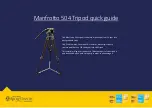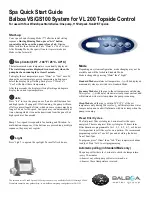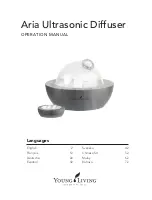
Grounding guidelines
Electrostatic discharge damage
Electronic components are sensitive to electrostatic discharge (ESD). Circuitry design and structure
determine the degree of sensitivity. Networks built into many integrated circuits provide some
protection, but in many cases, ESD contains enough power to alter device parameters or melt
silicon junctions.
A discharge of static electricity from a finger or other conductor can destroy static-sensitive devices or
microcircuitry. Even if the spark is neither felt nor heard, damage may have occurred.
An electronic device exposed to ESD may not be affected at all and can work perfectly throughout a
normal cycle. Or the device may function normally for a while, then degrade in the internal layers,
reducing its life expectancy.
CAUTION:
To prevent damage to the computer when you are removing or installing internal
components, observe these precautions:
Keep components in their electrostatic-safe containers until you are ready to install them.
Before touching an electronic component, discharge static electricity by using the guidelines described
in this section.
Avoid touching pins, leads, and circuitry. Handle electronic components as little as possible.
If you remove a component, place it in an electrostatic-safe container.
The following table shows how humidity affects the electrostatic voltage levels generated by
different activities.
CAUTION:
A product can be degraded by as little as 700 V.
Typical electrostatic voltage levels
Relative humidity
Event
10%
40%
55%
Walking across carpet
35,000 V
15,000 V
7,500 V
Walking across vinyl floor
12,000 V
5,000 V
3,000 V
Motions of bench worker
6,000 V
800 V
400 V
Removing DIPS from plastic tube
2,000 V
700 V
400 V
Removing DIPS from vinyl tray
11,500 V
4,000 V
2,000 V
Removing DIPS from Styrofoam
14,500 V
5,000 V
3,500 V
Removing bubble pack from PCB
26,500 V
20,000 V
7,000 V
Packing PCBs in foam-lined box
21,000 V
11,000 V
5,000 V
ENWW
Preliminary replacement requirements
45
Summary of Contents for ENVY m6-1100
Page 4: ...iv Safety warning notice ENWW ...
Page 8: ...viii ENWW ...
Page 18: ...10 Chapter 1 Product description ENWW ...
Page 30: ...22 Chapter 2 External component identification ENWW ...
Page 31: ...3 Illustrated parts catalog ENWW 23 ...
Page 33: ...Computer major components ENWW Computer major components 25 ...
Page 50: ...42 Chapter 3 Illustrated parts catalog ENWW ...
Page 108: ...100 Chapter 4 Removal and replacement procedures ENWW ...
Page 112: ...104 Chapter 5 Using Setup Utility BIOS and System Diagnostics ENWW ...
Page 116: ...108 Chapter 6 Specifications ENWW ...
Page 124: ...116 Chapter 7 Backing up restoring and recovering ENWW ...
Page 128: ...120 Chapter 9 Recycling ENWW ...
Page 132: ...124 Index ENWW ...
Page 133: ......
Page 134: ......
















































